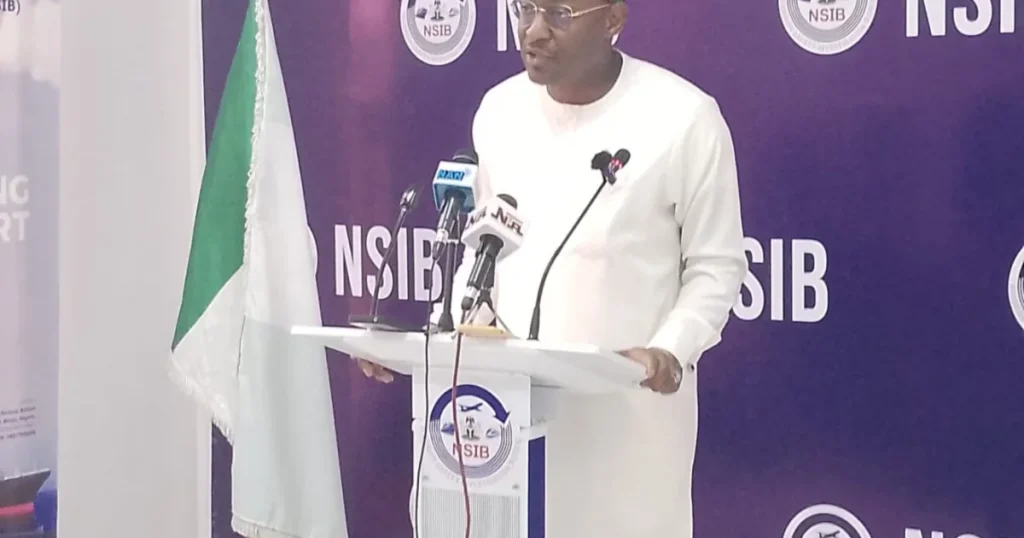The Nigeria Safety Investigation Bureau (NSIB) has embarked on a comprehensive investigation into the Abuja-Kaduna train derailment, aiming to uncover the root causes of the incident and prevent future occurrences. The derailment, which involved a train carrying 583 passengers and crew, resulted in 12 reported injuries, ranging from minor to moderate, with no fatalities. First aid was administered at the scene, followed by transportation of the injured to medical facilities for further treatment. The NSIB is committed to conducting a thorough and independent investigation, adhering to international best practices, and has set a target date of September 25, 2025, for submitting the final report to relevant authorities. This extended timeframe underscores the complexity of the investigation and the bureau’s commitment to a meticulous examination of all contributing factors.
Central to the NSIB’s investigative process is the preservation of critical evidence. The accident site has been secured, and crucial data, including CCTV footage and other pertinent materials, have been collected and safeguarded. This evidence will be meticulously analyzed to determine the sequence of events leading up to the derailment and identify any systemic issues that may have contributed to the incident. An Investigator-in-Charge has been appointed to lead the investigation, collaborating closely with stakeholders such as the Nigerian Railway Corporation (NRC) to ensure a comprehensive and coordinated approach. The NSIB has emphasized the importance of refraining from speculation about the cause of the derailment, assuring the public that the official findings will be released within 30 days of the incident’s occurrence.
Despite its commitment to a thorough investigation, the NSIB faces significant financial constraints that are hindering its operational capacity. The Director-General, Capt. Alex Badeh, has expressed frustration over the inadequate funding allocated to the bureau, highlighting the importance of sufficient resources for effective investigation and training. While acknowledging the receipt of some funds, Badeh stressed their insufficiency, particularly given the need to train more investigators and acquire essential investigative equipment. The bureau is also grappling with non-remittance of funds from the Nigeria Maritime Administration Safety Agency (NIMASA), further exacerbating its financial challenges. This financial strain underscores the urgent need for increased government support to ensure the NSIB can effectively fulfill its crucial safety investigation mandate.
The NSIB’s investigation into the Abuja-Kaduna train derailment serves as a critical opportunity to enhance railway safety in Nigeria. By meticulously analyzing the incident, the bureau aims to identify systemic weaknesses and recommend corrective measures to prevent future derailments. The investigation will delve into various aspects of railway operations, including track maintenance, signaling systems, train operations protocols, and emergency response procedures. The findings will inform policy recommendations and industry best practices, ultimately contributing to a safer and more reliable railway system.
Furthermore, the investigation’s focus on independent analysis and adherence to international standards reinforces the NSIB’s commitment to transparency and accountability. By conducting an unbiased investigation, free from external influence, the bureau aims to instill public trust in its findings and recommendations. The final report will provide a comprehensive account of the derailment, including the sequence of events, contributing factors, and recommendations for corrective actions. This transparent approach will not only shed light on the specific incident but also contribute to a broader understanding of railway safety challenges and potential solutions.
The NSIB’s dedication to a thorough investigation, coupled with its appeal for adequate funding, underscores the importance of prioritizing safety in Nigeria’s railway sector. By addressing the financial constraints faced by the bureau, the government can empower the NSIB to effectively fulfill its mandate of investigating accidents, identifying safety deficiencies, and recommending improvements. This proactive approach to safety investigation is crucial for building a resilient and reliable railway system that can effectively serve the transportation needs of the Nigerian populace. The outcome of the Abuja-Kaduna train derailment investigation will serve as a crucial benchmark for future safety improvements and contribute to a safer and more robust railway network in the country.


